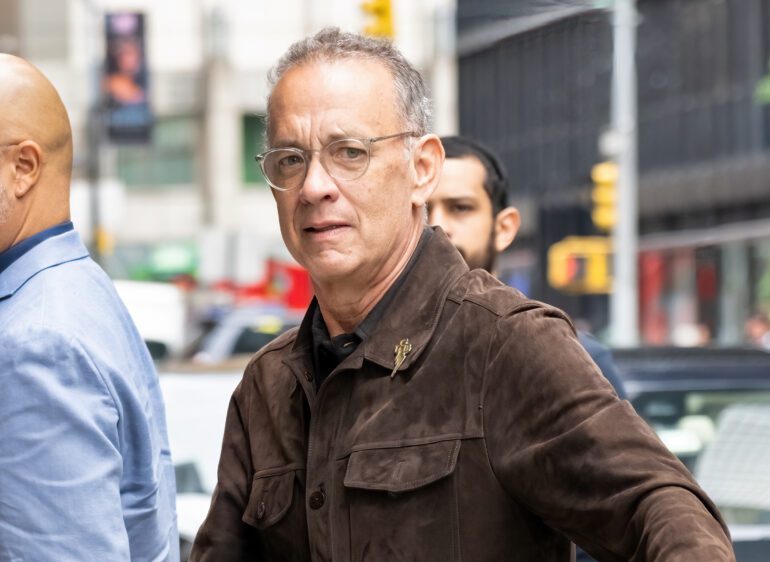TL;DR:
- Tom Hanks discusses the potential of AI technology, allowing him to star in films even after his death.
- AI and deep fake technology can recreate actors at any age, preserving their performances indefinitely.
- Audiences may not be able to distinguish between real and AI-generated performances as the quality continues to improve.
- Hanks contemplates the ethical implications of using AI in films and whether audiences will accept it.
- Hollywood agents and legal firms are working on contracts to protect actors’ intellectual property rights.
- Hanks hints at using AI to de-age his character in his upcoming collaboration with Robert Zemeckis.
- The future of film may involve actors’ performances transcending time and mortality through AI technology.
Main AI News:
In a recent interview with The Adam Buxton Podcast, renowned actor Tom Hanks delved into the realm of AI technology, exploring the possibility of his on-screen presence persisting long after his earthly departure. With awe-inspiring advancements in AI and deep fake technology, Hanks revealed that he could potentially continue to grace the silver screen, portraying characters at any age well into the future.
Reflecting on the astounding capabilities of AI, Hanks mused, “What is a bona fide possibility right now, if I wanted to, [is] I could get together and pitch a series of seven movies that would star me in them in which I would be 32 years old from now until kingdom come.” The notion of seamlessly embodying his younger self through AI or deep fake technology intrigued the accomplished actor, who emphasized the everlasting impact such digital recreations could have on cinematic storytelling.
Beyond the technical wizardry behind AI-driven performances, Hanks acknowledged that the audience experience would remain remarkably authentic. He stated, “Outside of the understanding that it’s been done by AI or deep fake, there’ll be nothing to tell you that it’s not me and me alone, and it’s going to have some degree of lifelike quality.” With advancements pushing the boundaries of realism, viewers may find themselves immersed in a world where their favorite actors transcend the constraints of time and mortality.
In his latest collaboration with acclaimed director Robert Zemeckis for the movie Here, Hanks hinted at employing AI technology to de-age his character—an endeavor that would seamlessly blend the actor’s seasoned talent with the vibrancy of his youth. However, as AI becomes an increasingly integral part of the filmmaking process, Hanks raised an important question: Would audiences truly mind if AI were used in crafting captivating narratives?
As the industry hurtles towards a future shaped by AI, Hanks divulges that Hollywood agents, guilds, agencies, and legal firms are already engaged in pivotal discussions to safeguard the rights and intellectual property of actors. The legal ramifications surrounding the appropriation of an actor’s likeness and voice in perpetuity are being thoroughly examined, ensuring a fair and ethical landscape in which artists can flourish.
Tom Hanks’ visionary perspective unveils a world where the captivating performances of beloved actors can transcend the limitations of time, opening up a realm of infinite creative possibilities. As the line between reality and simulation continues to blur, the advent of AI in film promises a mesmerizing future where icons never fade, and stories never cease.
Conlcusion:
The advancements in AI technology, as discussed by Tom Hanks, have profound implications for the film market. The ability to recreate actors at any age through AI and deep fake technology opens up a new realm of possibilities for storytelling and character portrayal. This innovation has the potential to reshape the dynamics of the industry, allowing iconic actors to continue their on-screen presence indefinitely. As AI-generated performances become increasingly indistinguishable from reality, audience perception and acceptance will play a crucial role in shaping the market’s response.
Furthermore, the discussions surrounding intellectual property rights and legal frameworks highlight the need for comprehensive measures to protect the interests of actors and their digital personas. The future of the film market will undoubtedly be influenced by the intersection of AI and entertainment, paving the way for a captivating era where the boundaries of time and age are transcended on the silver screen.

